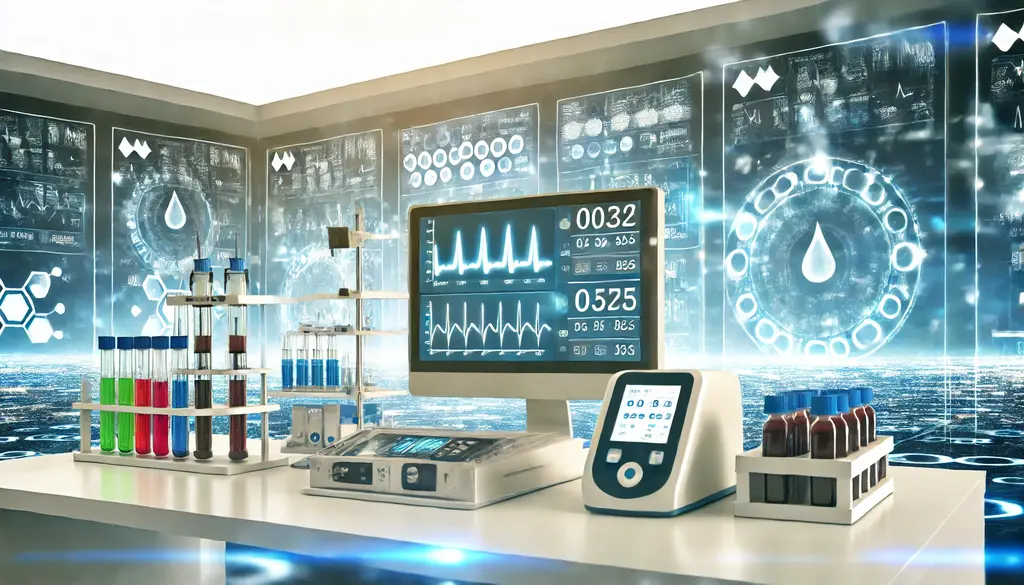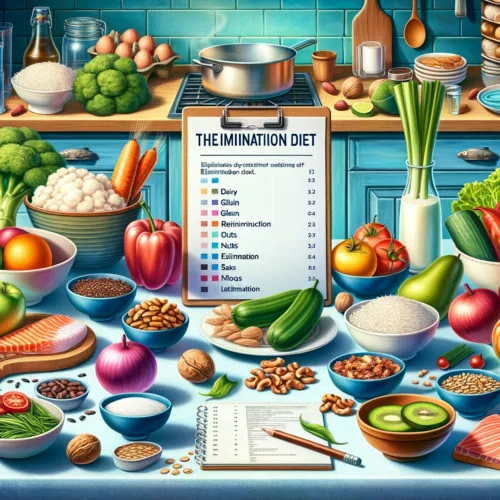Personalized nutrition is an approach that offers individualized dietary recommendations based on genetics, lifestyle, and the unique physiological characteristics of each person. The importance of this approach is increasing in light of modern research, which confirms that the same product can have different effects on different people. Genetic tests play a key role in this process, helping to determine which products are most beneficial for the health of a specific individual, and which may provoke negative reactions or exacerbate chronic diseases.
The environment also affects food preferences and health, including the availability of certain products, cultural dietary traditions, and even the climatic conditions in which a person grew up. Integrating data about genetics and environmental factors allows for the creation of a truly personalized nutrition plan, contributing to improved overall well-being and health.
A Scientific Approach to Personalized Nutrition

Personalized nutrition relies on the use of genetic testing to identify individual metabolic traits and reactions to various nutrients. These tests can reveal genetic variants that affect the processing of certain foods, sensitivity to ingredients, or the risk of developing food intolerances and diseases. For example, the presence of specific markers can indicate an increased need for certain vitamins or a slower metabolism of caffeine, making the diet more effective and safer for health.
The influence of lifestyle and environment on nutrition is also undeniable. Factors such as the level of physical activity, stress, quality and availability of food, and the overall environmental situation significantly modify nutrient requirements. For instance, a person living in conditions of high urbanization and stress may have increased needs for antioxidants and B vitamins to maintain nervous system health.
Thus, the modern scientific approach to personalized nutrition involves comprehensive use of genetic data and analysis of living conditions, allowing for the formation of the most optimal and healthy dietary habits.
Technologies and Innovations
Modern technologies play a crucial role in the development of personalized nutrition approaches. Innovations in biotechnology and information technology not only allow for the collection but also the analysis of vast arrays of individual health data. For example, the advancement of biosensor technologies enables real-time monitoring of glucose and fat levels in the blood, which facilitates the customization of diets to maintain optimal health.
Nutrition tracking apps and devices have become an integral part of many people’s lives. Smartphones and wearable devices equipped with features to monitor diet and physical activity help users keep track of their intake of calories and macronutrients. Smart scales and intelligent food containers can analyze the nutritional content of meals and provide recommendations based on individual nutrient and energy needs. These technologies in nutrition contribute to a more informed choice of foods and help maintain a healthy lifestyle with scientific precision.
Examples of Personalized Diets
Personalized diets are becoming increasingly popular due to their ability to account for the individual metabolic characteristics of each person. Diets based on metabolic profiling are tailored to the speed and specifics of an individual’s metabolism. Such diets can aid in weight optimization, improving energy levels, and overall health. For instance, a person with a slow metabolism might benefit from a low-carbohydrate diet to prevent weight gain and elevated blood sugar levels.
The role of the microbiome is also crucial in the development of personalized diets. Research shows that the composition of the microbiome affects how our bodies digest food, absorb nutrients, and even regulate the immune system. A diet designed based on microbiome analysis might include probiotics and prebiotics to support gut health, which in turn impacts overall health and well-being. Thus, understanding and maintaining microbiome health can help prevent various diseases and improve life quality.
The Benefits of Personalized Nutrition

Personalized nutrition offers significant advantages for improving health and overall well-being. This approach, which considers individual physiological characteristics, allows for a more accurate determination of the body’s needs for specific nutrients. This facilitates better food absorption, optimizes energy levels, and helps prevent diseases. For example, tailoring a diet to genetic traits can aid in managing blood sugar levels in diabetics or improve digestion and reduce the risk of developing cardiovascular diseases.
For athletes and active individuals, personalized nutrition is particularly valuable as it enables the most efficient use of nutrients to enhance physical performance and speed up recovery after workouts. An individualized approach helps determine the optimal balance of proteins, fats, and carbohydrates, as well as the need for additional micronutrients and vitamins. This contributes to improved outcomes and reduced recovery time. Thus, personalized nutrition not only supports a high level of health but also helps achieve better sports results.
The Future of Personalized Nutrition
Personalized nutrition continues to gain popularity, and we can expect a deeper and broader expansion of this trend in the future. There is increasing interest in developing more precise genetic tests and biosensor devices that can monitor the body’s reactions to different foods in real-time. The advancement of artificial intelligence and machine learning also offers new opportunities for analyzing large health data sets, enabling the creation of more accurate and individualized dietary recommendations. As nutrition technologies become more accessible, personalized nutrition could become the norm rather than the exception.
With the growth of personalized nutrition, new ethical and legal issues also arise. A key aspect is the confidentiality and protection of genetic data that can be used to formulate diets. The ownership and use of such data require careful regulation to protect personal information and prevent its use for discriminatory purposes. Additionally, issues of accessibility to personalized nutrition need to be considered to prevent exacerbating social inequalities in health and nutrition.















